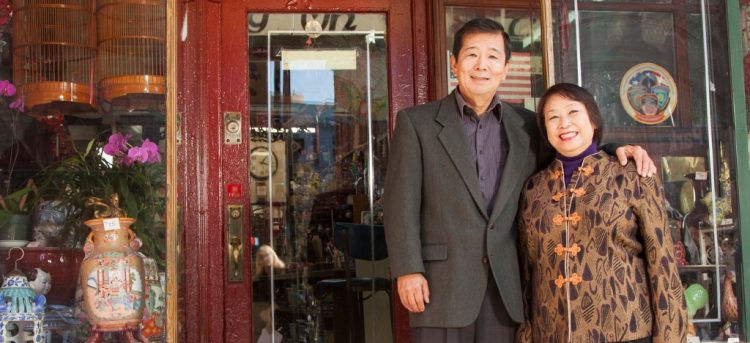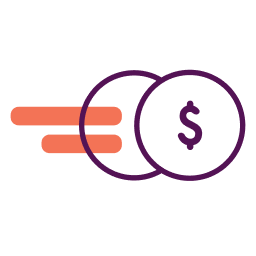What is the New York State COVID-19 Pandemic Small Business Recovery Grant Program?
While COVID-19 is still an active threat to many small businesses well into 2022, most pandemic economic recovery programs, like the Small Business Administration’s Paycheck Protection Program (PPP) loans and Economic Injury Disaster Loans (EIDL) from 2020 and 2021, have stopped accepting applicants. But New York State still has one program available to help struggling businesses who are recovering from the impacts of the COVID-19 pandemic: The New York Small Business Recovery Grant Program.
Started in August 2021, this grant program was created for small businesses, micro-businesses, and for-profit independent arts and cultural organizations in New York State. Its aim is to provide these businesses with economic assistance for hardship from the COVID-19 pandemic.
Unlike a PPP loan or other recovery loan, these grants do not have to be repaid. But there are certain eligibility requirements that all applicants must meet to be considered for the grants.
Eligibility for New York Small Business Recovery Grants
First and foremost, in order to qualify for a New York Small Business Recovery Grant, you need to be a small business, microbusiness, or for-profit independent arts or cultural organization that is resident, incorporated, licensed, or registered to do business in New York State. To be considered eligible, your business had to be up and running by March 1, 2019 and still be running when you apply (although your operation is allowed to be shuttered at the time of your application due to COVID-19 restrictions).
Other Eligibility Requirements for Grant Applications
Your business must also be “viable”, which means you can show you had positive net profit in 2019 based on your 2019 federal tax return. You also have to show that you suffered economic hardship due to the COVID-19 pandemic or health and safety protocols. In order to determine the hardship, you’ll have to show a loss of gross receipts from 2019 through the pandemic.
The size of your business is important to help determine your eligibility, too. Small businesses and micro-businesses must be independently owned and operated and not dominant in their field. Small businesses must also employ 100 or fewer people while micro-businesses are limited to 10 or fewer people.
Eligibility Requirements for Independent Arts or Cultural Organizations
For a for-profit independent arts or cultural organization, your business can be a small or medium sized operation such as a live performance venue, promoter, productive company, or other performance related business. You also must be independently operated, and have 100 or fewer employees not counting seasonal hires.
How Previous Economic Assistance Can Affect Eligibility
The amount and type of assistance you’ve received from previous initiatives including federal assistance may affect your eligibility. For instance, if you received a grant from the SBA Restaurant Revitalization Grant Program, you can’t apply for a New York Small Business Recovery Grant. However, you can apply if you received assistance in a limited amount from other programs. (See the table below.)
| Assistance Type | Limit |
| Paycheck Protection Program Loan | $250,000 or less |
| COVID-19 EIDL Advance Grant | $10,000 or less |
| COVID-19 EIDL Supplemental Targeted Advance Grant | $5,000 or less |
| SBA Shuttered Venue Operator Grant | None |
Ineligible Businesses for New York Small Business Recovery Grants
Certain business types are ineligible for the grants, including non-profits, churches, or religious institutions. Businesses or entities that are owned by the government, offices of elected officials, and businesses engaged in lobbying or political activities are also ineligible. Landlords and passive real estate businesses cannot apply, and neither can illegal businesses. Other business types or industries may be deemed ineligible as specified by Empire State Development (ESD).
You’ll need to make sure you don’t owe any federal, state, or local taxes prior to July 15, 2020 (unless you’ve already agreed to a repayment, deferral, or other agreement with the appropriate tax authorities). And you must be in “substantial compliance” with applicable laws, regulations, codes, and requirements for local, state, and federal codes.
What You Need to Apply for a New York Small Business Recovery Grant
Eligible applicants will have to gather some specific documents in order to apply for the recovery grant. Because you’re required to demonstrate a positive net from on your 2019 business tax return and show that your gross receipts have been affected by the pandemic, you need a few specific pieces of information. First, you’ll need your tax returns from 2019, 2020, and 2021.
Next, you must be able to show that you had 2019 or 2020 gross receipts between $25,000 and $2.5 million. You can find this information in the following places of your 2019 or 2020 federal tax returns:
- Line 1a, IRS Form 1120 or 1065
- Line 1, IRS Form 1040 Schedule
- Sum of line 1a + line 2, IRS Form 1040 Schedule F
Next, you must be able to show that your business had a positive net profit of at least $1 on your 2019 tax return. You can find this information in the following places:
- Line 28, IRS Form 1120 (or line 21, IRS Form 1120S)
- Line 22, IRS Form 1065
- Line 31, IRS Form 1040 Schedule C
- Line 34, IRS Form 1040 Schedule F
Once you have this information, you can calculate your loss in annual gross receipts from year-over-year as of December 31, 2020 compared to the same period in 2019. You must be able to show that you had a 25% loss between 2019 and 2020, but you have to include any Pandemic Unemployment Assistance (PUA), Federal Unemployment Compensation and Lost Wage Assistance Programs, which will be verified by the New York State (NYS) Department of Labor. You’ll have to be able to show that your total expenses in 2020 for your small business are greater than the amount you’d receive from the grant.
Eligible businesses will also be asked to provide at least two of the following documents to prove that your business is in the state of New York and currently in operation:
- Lease
- Utility bill
- Business bank or credit card statement
- Professional insurance bill
- Payment processing statement
- NYS ST-809 or ST-100 sales tax collection document
For proof of business organization, you’ll need to provide one of the following:
- Business license
- Business certificate
- Certificate of organization
- Certificate of assumed name or DBA
- NYS certificate of authority
- Articles of incorporation
- NYS municipality-issued document showing authorization to work in NYS
You’ll have to provide your schedule of ownership, unless you’re a sole proprietor, and proof of your number of employees via your most recent NYS-45 document. You may be asked to provide IRS Form 4506-C.
Finally, in order to receive the grant, you’ll need to provide your IRS Form W-9 and bank account information.
Grant Amounts for the New York Small Business Recovery Program
The amount of money you may be awarded for the grant depends on your annual gross receipts.
| Gross receipts | Grant amount |
| $25,000-$49,999.99 | $5,000 |
| $50,000-$99,999.99 | $10,000 |
| $100,000-$2.5 million | 10% of gross receipts (max $50,000) |
You also can’t use the grant funds for unauthorized purposes, like repayment or prepayment of a PPP loan. Eligible use for the fund includes anything pertaining to your business, including payroll costs, rent or mortgage payments, property taxes, insurance, or utilities. You can also use the grant to cover costs related to complying with COVID-19 health and safety protocols, such as personal protection equipment (PPE).
Other Resources For Small Business Grants
ESD is clear that the amount of funding they have for these grants is limited, so they’re being extremely selective in who receives funding. They state that priority for grant awards will be given to socially and economically disadvantaged business owners, such as those owned by people with disabilities or veteran-owned businesses. Also, your business’s industry and geographic location may factor into your application. So if your business is in New York City, you might not be selected because of the high amount of other applicants.
If you’re ineligible for this grant program or apply and aren’t selected, there are a number of other ways you can get help for your business. Small business grants are like free money for your business, as they don’t have to be repaid. Of course, a small business loan can help you build credit for your business and may not be as difficult to get as you think.
If you’re a member of certain protected classes, you may be able to access other resources, such as grants for women-owned businesses and grants for veterans. At Nav, we also have a small business grant program where we award one winner $10,000 and one runner-up $5,000. To apply for Nav’s Small Business Grant, you’ll need to create a free Nav account, tell us what your business could do with $10,000, and then ask your customers, friends, and family to vote for you. Winners are selected quarterly and receive a check for their business to use however they need to.
For more information on the New York grant, visit nysmallbusinessrecovery.com.
This article was originally written on March 25, 2022 and updated on April 4, 2022.


Have at it! We'd love to hear from you and encourage a lively discussion among our users. Please help us keep our site clean and protect yourself. Refrain from posting overtly promotional content, and avoid disclosing personal information such as bank account or phone numbers.
Reviews Disclosure: The responses below are not provided or commissioned by the credit card, financing and service companies that appear on this site. Responses have not been reviewed, approved or otherwise endorsed by the credit card, financing and service companies and it is not their responsibility to ensure all posts and/or questions are answered.